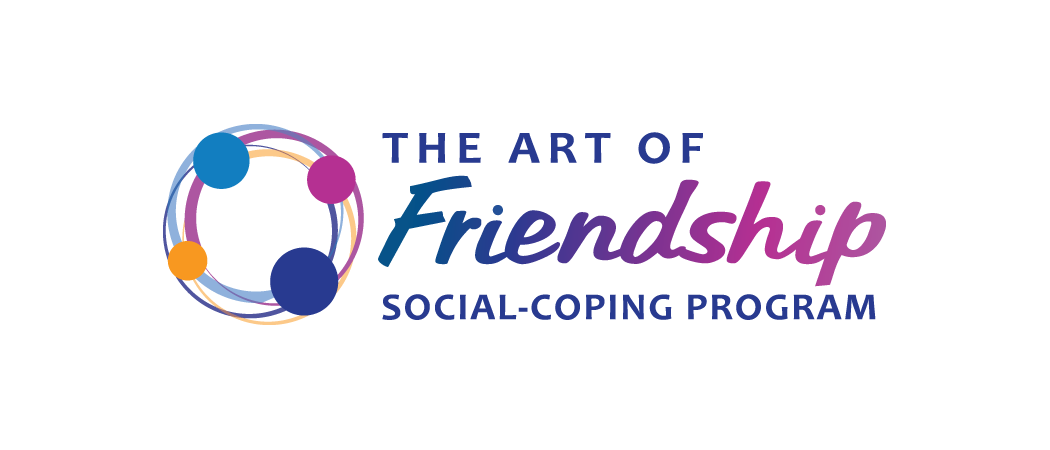Art of Friendship Social-Coping Tip #14: How to Participate Excellently in Cooperative & Competitive Play
Not all play is created the same. The objectives and strategies in Cooperative/Imaginary Play and Competitive Play are different. Their core common goal is FUN.
COMPETITIVE PLAY: The narrow view of playing COMPETITIVE GAMES involves rules, winning and losing, and competition. That is the structure of COMPETITIVE PLAY, but that is not the objective. Children with social challenges sometimes hyper-focus on winning, rules, and fairness, and they miss the big picture of having FUN. They treat sports or board games as though they are battles to the death they dare not lose. They compete as though they are playing game seven of the World Series…but it’s recess on Tuesday in February. With this kind of intensity, it is hard to muster sportsmanship and grace.
Please know this lesson isn’t neutering your child or eliminating COMPETITION. Competition can be healthy, and some aspects of our world are competitive. The very social structure of COMPETITIVE PLAY is competing or vying with other people. You test your skill or luck against another individual or a team.
A single-minded, literal focus on rules and winning leads you to be defensive, to argue, or lose control of emotions during activities that are supposed to be enjoyable. However, FOCUSING ON FUN (FOF!) as the big picture goal keeps the whole group happily engaged in the activity. FOCUS ON FUN to improve relationships and your REPUTATION. Here are the big picture goals for COMPETITION:
· It’s supposed to be FUN
· Earn another game! FOF! Keep it positive for all so you can play again.
· Make and keep friends. Keep the group cohesive and connected.
· Preserve your own great REPUTATION.
If you make these four aims your driving motivation to play, you will be a social success! Encourage big picture thinking about COMPETITIVE PLAY. Playing is NOT a battle to the death, it is about RELATIONSHIPS and TOGETHERNESS! Get your priorities right and FOF!
Sometimes, when a child feels insecure or badly about themselves, they may accidentally attach their self-esteem to winning or losing. Winning does not make you a great person or improve your social standing. Losing doesn't mean that you are worthless. Playing games or sports is supposed to be FUN. It can be a healthy hobby to practice a skill in a COMPETITIVE GAME or sport. You can develop a sense of competence and confidence. But there is always someone better or more experienced than you, so separate your self-esteem from winning and losing. Instead, try to be a good, caring, moral human being you can be proud of.
Therefore, in COMPETITIVE PLAY you shift back and forth between competition and sportsmanship. You can still compliment your opponents, "Great play!", "Great Move", and of course, "Good game!" during and after the COMPETITION. If you have an argument over a rule or fairness, remember the goal of KEEPING IT FUN and EARNING ABOTHR GAME. Shout, “Do over!” or "Let it go and just get back to the game."
COOPERATIVE PLAY: On the other hand, COOPERATIVE/IMAGINATIVE PLAY (like conversation) is more like theater improvisation. Compare it to a CONSTRUCTION SITE. You build a “TOWER OF FUN” by stacking cool ideas on top of each other. You must listen to your play partner(s), accept their idea, and BUILD ON IT. The mental attitude in improv is "Yes, and _______". “Cool, next __________ happens.” “Uh Huh, and then, __________.”
To repair play when conflicts arise, first try to COMPROMISE (BALANCE THE SCALES OF FUN or MIX IDEAS TOGETHER IN THE IDEA POT). Or, use super-duper kid-solutions like "How about we decide with eenie-meenie.” or, “Let’s use rock-paper-scissors.”
Reinforcement strategy for COMPETITIVE PLAY: Be sure to play games as a family and talk about the required mindset to keep it fun throughout. FOF! Ask your child, "How can you keep this FUN for everyone the entire game?" If you are playing a board, card, or sports game, ask first, "Let's get our minds ready - would you rather extend FUN family togetherness or win an argument?" Assuming the answer is the former, help your child adopt the healthy COMPETITIVE PLAY mindset above... and ENJOY!
Proactively plan the SPORTSMANSHIP scripts your child can say when winning or losing. Compliment your opponents’ moves and win or lose, say, “Good game, want to play again?”
Be sure to catch and praise every behavior that SHOWS that your child is learning and practicing these vital skills. Be sure to FOF (FOCUS ON FUN!) “What kind of thinking should you leave behind, so you don’t get frustrated/into arguments?” (COMPETITIVE PLAY is a battle to the death-thinking)
Reinforcement strategy for COOPERATIVE PLAY: During car rides or at the end of dinner, create progressive stories in which each person adds one sentence. Encourage your child to listen and build on the story with the “Yes, and ________” approach. Enthusiastically compliment, “good one!“ or, “’way to build on the story!”. If your child plans to hang out with someone, review the different mindsets your child should be prepared to use. Be sure to FOF (FOCUS ON FUN!) Proactively, in question form, prompt, “What kind of thinking will help your playdate go great?” “What kind of thinking should you leave behind so you don’t get frustrated/into arguments?”
ONWARD AND UPWARD! — Mike Fogel

